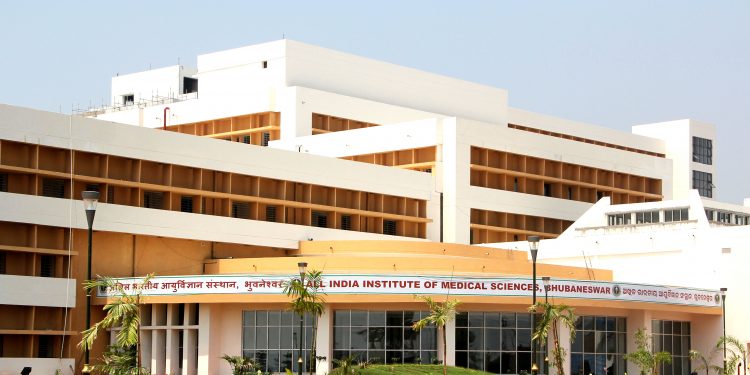Bhubaneswar: AIIMS Bhubaneswar is all set to be designated as a Centre of Excellence (CoE) for the management and research of sickle cell disease (SCD), Union Minister Jual Oram confirmed, marking a significant step forward in Odisha’s healthcare capabilities.
Union Tribal Affairs Minister Jual Oram made the announcement Thursday while attending the World sickle Cell Awareness Day celebration at the institute.
Speaking at the event, Oram highlighted the significant role played by AIIMS Bhubaneswar in providing comprehensive care to SCD patients not only in Odisha but also in neighbouring states.
He said, “The Centre of Excellence status will further enhance AIIMS Bhubaneswar’s capacity for advanced research and quality treatment in sickle cell disease.”
The Union Minister added that under the visionary leadership of the Prime Minister, the Government of India is committed to eradicating sickle cell anaemia by 2047.
“So far, 5.79 crore people have been screened across the country. Among them, 5.55 crore tested negative, 16.38 lakh have been identified as carriers, and 2.10 lakh have been diagnosed with the disease,” Oram stated.
AIIMS Bhubaneswar currently provides treatment to over 700 registered SCD patients, more than 500 of whom are in the 0–19 age group.
The institute offers regular diagnostic services, treatment, and carrier screening — including screening of extended family members of affected individuals — according to AIIMS Bhubaneswar Executive Director Dr. Ashutosh Biswas.
Dr Biswas also informed that the institute provides prenatal diagnostic services for early detection of conditions such as Down syndrome, neural tube defects, thalassemia, and sickle cell anaemia within the first 20 weeks of pregnancy.
He noted, “If both parents are carriers, there is a 25 percent chance that the child may be affected.”
During his visit to the institute, Oram personally interacted with SCD patients and their families. He acknowledged the commitment of AIIMS Bhubaneswar in offering compassionate and comprehensive care, especially to patients from tribal and underserved communities.
UNI






































